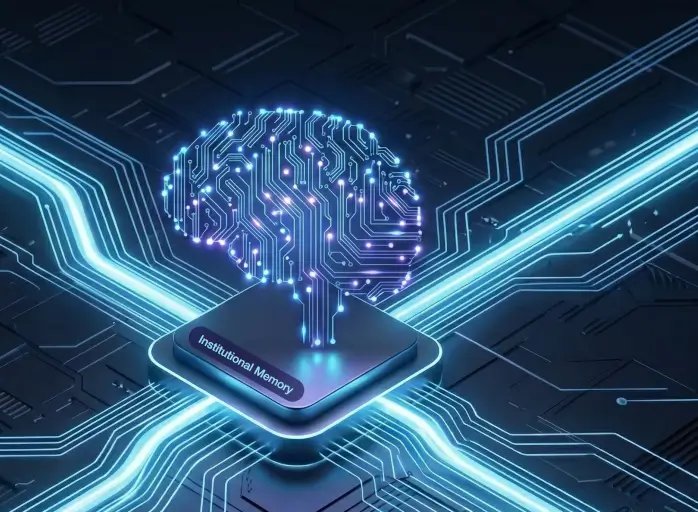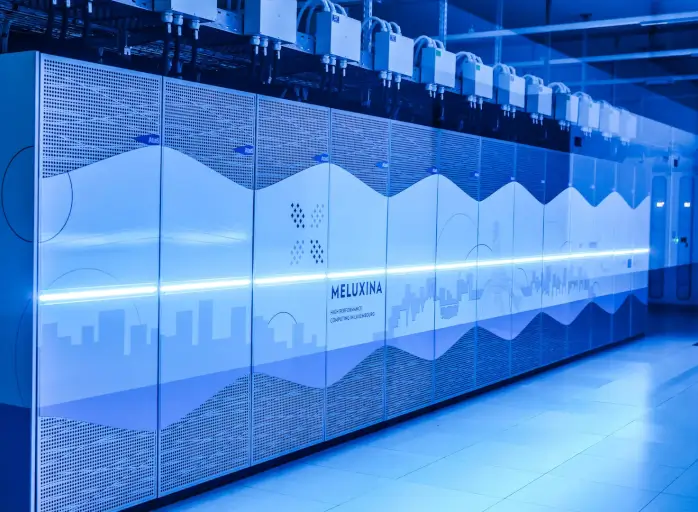

Supercomputing and artificial intelligence trends
A new Luxinnovation brochure introduces key trends in supercomputing and AI, as well as business prospects and support mechanisms to help companies leverage these technologies.
 Abigail Okorodus
Abigail Okorodus
Supercomputing, also known as high-performance computing (HPC), and AI are changing the status quo in different industries. However, many companies are yet to discover the immense potential these leading technologies hold for their businesses. The brochure, based on a study by the Market Intelligence department at Luxinnovation, and done in the context of the EuroCC project, breaks down key developments in these fields, both in Luxembourg and globally. EuroCC aims to build a European network of national HPC competence centres to bridge the supercomputing skills gap and promote cooperation across Europe.
 “Our full report aimed to not only demonstrate the increasing convergence of these two technologies and the resulting benefits for companies, but also to provide insights on the current market state, contributions from key players, the challenges and opportunities ahead,” explains Sara Bouchon, Director Market Intelligence at the national innovation agency.
“Our full report aimed to not only demonstrate the increasing convergence of these two technologies and the resulting benefits for companies, but also to provide insights on the current market state, contributions from key players, the challenges and opportunities ahead,” explains Sara Bouchon, Director Market Intelligence at the national innovation agency.
The eight-page brochure summarises key elements from the report to enable companies and individuals understand the latest advancements and applications of supercomputing and AI in a snapshot in order to leverage these technologies effectively.
Four key trends
The brochure highlights four important trends: the merging of supercomputing and AI, the increasing use of cloud-based high-performance computing services, the impact of collaborative projects and open-source software in the adoption of AI and supercomputing technologies, and the need for energy-efficient solutions and sustainable infrastructure.
 “While supercomputing is facilitating various scientific breakthroughs by enabling complex simulations and data analysis at unprecedented speeds, AI is increasingly being adopted by companies to automate routine tasks, personalise customer experiences, and enhance decision-making,” underlines Paul Louis Bene, Market Intelligence Analyst at Luxinnovation. “However, the synergy between both technologies creates real potential to further drive innovations across various sectors, from healthcare to climate science and manufacturing,” he adds.
“While supercomputing is facilitating various scientific breakthroughs by enabling complex simulations and data analysis at unprecedented speeds, AI is increasingly being adopted by companies to automate routine tasks, personalise customer experiences, and enhance decision-making,” underlines Paul Louis Bene, Market Intelligence Analyst at Luxinnovation. “However, the synergy between both technologies creates real potential to further drive innovations across various sectors, from healthcare to climate science and manufacturing,” he adds.
At a glance, the brochure introduces key drivers boosting the adoption of these technologies, HPC-AI use cases that address several business challenges, and opportunities that various players can explore.
It equally presents examples of how companies are already using HPC and AI worldwide and in Luxembourg, from agro ecosystem forecasting to protecting companies against malware and ransomware attacks.
Entities looking to explore these technologies further can explore programmes in the brochure like the Fit 4-Digital AI or joint calls for HPC projects by research institutions and companies. It additionally highlights key points of contacts to access support, including Luxinnovation and Supercomputing Luxembourg.







